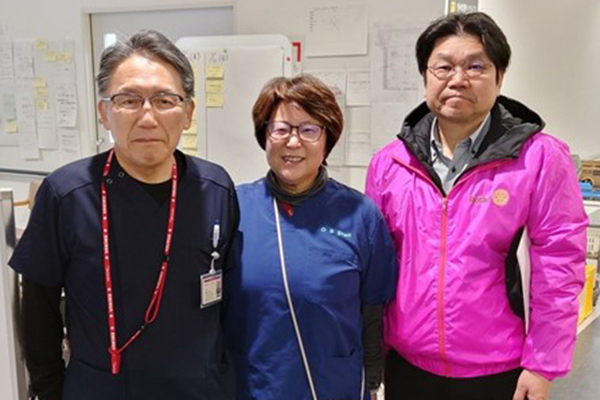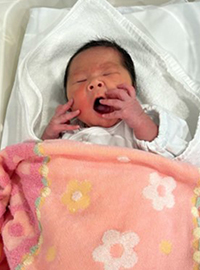
By Kazuo Arai, Rotary Club of Shimodate, Japan, past governor of District 2820, and a member of the district’s emergency disaster relief team
As I finished my New Year’s rituals and listened to elegant gagaku music (traditional Japanese court music) at my home in Ibaraki Prefecture, drinking a glass of fine sake given to me by a friend in Kyoto, tremors began gently and become more intense. It was 4:10 p.m. on 1 January that the earthquake with a magnitude of 7.6 struck the Noto Peninsula in Ishikawa, Japan.
Those of us who experienced the Great East Japan Earthquake of 11 March 2011 can intuitively understand the hardships faced by the disaster victims. But as Rotarians we were frustrated by seeing the devastation of the disaster-stricken areas becoming more apparent day by day, and the reality that it was difficult to deliver supplies due to the dangerous road conditions, afterquakes, and unstable buildings which could collapse at any moment.
On 6 January, I contacted Masahiro Kanno, who supports local medical care in Noto, and who served as a district governor in the same year as I did. He runs Keiju Medical Center in Nanao City, Ishikawa, Japan.
Much infrastructure including water system, roads, airports, ports, government offices, hospitals, and homes were destroyed across a wide area of the Noto Peninsula, leaving many residents in need of medical treatment. In addition to regular patients, Keiju Medical Center also accepted many other patients affected by the disaster and patients from clinics that were no longer able to provide medical care. The workload of the staff has increased to two to three times their normal capacity. Although they were facing with such difficulties, and with doctors and staff also affected by the disaster and unable to get access to enough food, the hospital continues to operate. As Kanno noted, “we can’t stop providing medical care.”
Forming an emergency support team
I immediately contacted our district governor, Hiroyuki Okubo, and asked if our district could provide food assistance for Keiju Medical Center. He agreed and told me to act immediately. We formed the District 2820 Noto Peninsula Earthquake Emergency Support Team.
First, we applied for a district grant and asked members in the district to donate. Then, we collected food from members in the food industry. We also secured a permit from the city to drive disaster relief vehicles on the highways. We collected 16,680 instant noodles, 2,400 bottles (500mL) of beverages, 250 pieces of bread, and 144 bottles of energy drinks, as well as necessities such as disinfectant wipes, paper towels, face masks, disposable body warmers, plastic bags, and tarpaulins. It took only five days to collect all these supplies, and late at night on 11 January, we loaded three four-ton trucks and a van with relief supplies and headed to Noto Peninsula.
Increasing the hospital’s resiliency
Since all the Rotary members in the vicinity of the hospital and the office of the Nanao Rotary Club were affected by the disaster, we asked that no one contact Kanno directly. I told Kanno that our district would handle unloading and moving the supplies into the hospital so he and other hospital staff could focus on providing medical services.
We arrived at the hospital at 8 a.m. on 12 January and started moving supplies in. Gradually more people came to help us, and we were able to put everything in the storage room. Kanno expressed his gratitude, “District 2820 truly demonstrated the magic of Rotary.”


While we aren’t able to distribute supplies equally to all the tens of thousands of people affected by the earthquake, Kanno has demonstrated his commitment to maintaining medical care for the community, especially the most vulnerable such as those in need of dialysis or who are due to give birth. I believe our efforts are helping increase the resiliency of the hospital to serve the community.
During our relief efforts, a woman who had been transferred from another hospital gave birth. I was touched by the birth of a new life and was excited about the future of Noto.
—Adapted from Rotary Voices Japan
https://blog.rotary.org/2024/02/01/japanese-rotarians-provide-earthquake-relief/
